
Ralph Kipke

“A poet’s work is to name the unnameable, to point at frauds, to take sides, start arguments, shape the world, and stop it going to sleep.” – Salman Rushdie

In a nutshell, our exploration is focused on bridging morality, psychology and management science to understand how to craft ethical businesses that enable a "good society". We believe that “organisational goodness" is critical and can be operationalized on three levels, by: (a) the organization as a virtuous actor in society and ecosystem, (b) the organization as a container for collective flourishing through community enablement and virtuous practices (c) the organization as a trustee for authentic and creative self-expression, personal (moral) development and individual thriving.
Organisations pursue idiosyncratic aims and must survive in their respective markets. Yet, we are convinced they can also become – again – inspirational, courageous and responsible agents of a sustainable and shared prosperity for all. Whilst making a fair profit.
During the next weeks and months we will share here our evolving thinking and research, in order to enable collective exploration and stimulate a community of learning. On this page you find the growing book (the questions we tackle per chapter, the references we have consulted). In addition, we hope to be able to showcase work of young researchers who are willing to engage with partners or share their thesis with fellow academics. And we will also stimulate possible master- and bachelor thesis topics - where we can either become sparring partners or offer the theses in collaboration with the University of St. Gallen or the Hochschule für Wirtschaft Zürich.
Further research-oriented insights can also be found on our "bucket list".
We thoroughly believe that today's challenges are often "wicked" and require evidence-based and trans-disciplinary research, as well as intuition and practical wisdom to progress. We are often stuck in silo-thinking, flawed beliefs and assumptions, or focus too much on theory and analysis rather than sufficient focus on practical implementation. That is why we are trying to foster a coalition that transcends boundaries - between academia, consulting and organisational leaders as well as across numerous different domains.
We are looking forward to an enlightening and fruitful dialogue with many diverse thought and operational leaders. We are hopeful that, together, we will be able to add incremental value in an urgent and important debate. We truly hope that some of you will feel energised to join us, and get our "teeth" into a few particularly crunchy problems that undoubtedly await us on this journey!
Abstract
For many decades, management theorists and practitioners have been struggling to develop a novel “theory of work” that would help organisations to become at the same time more humane, socially responsible and productive. In spite of much rhetoric, agile methodologies and multiple waves of business transformations, it appears so far little has been achieved. Most recent studies demonstrate that the impact of work on both physical and mental health has been progressively deteriorating in most of the western world. In this article we argue that a more fundamental change in how we think about work and how we design organisations is necessary. In this article, written for a popular magazine, we build on neo-Aristotelian virtue ethics and suggest that a shift towards “eudaimocracy” might help to craft organisations that foster “organisational aliveness” and contribute positively to society. Drawing upon moral philosophy, sociology, complexity science and positive psychology we start to develop a set of principles and practices that could pragmatically bridge business ethics and management. In this context, we especially highlight the need to revise institutional governance, establish virtuous communities and develop practical wisdom and agency across the organisation. Using the concrete example of traditional HR processes, we examine how a novel approach could help to foster individual and collective flourishing and more radically address some of the shortfall of previous approaches.
Keywords: business ethics, virtue ethics, organisational development, leadership development, business transformation, management, HR, performance management, New Work, Agile, positive psychology
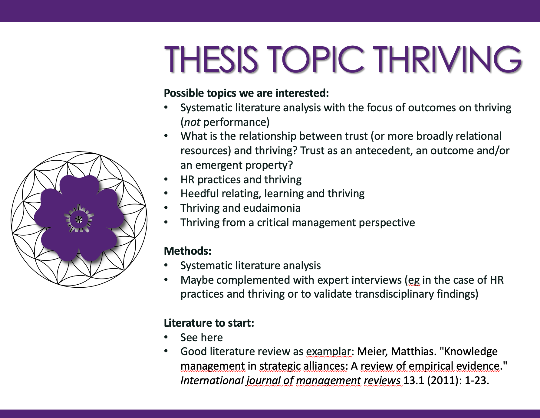
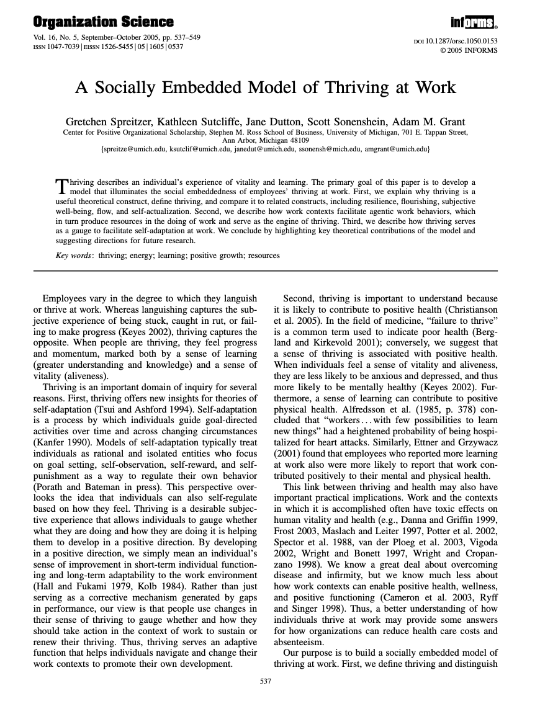
This is one of our core articles. Spreitzer and colleagues unpack the how thriving at work "feels" - as vitality and learning - and how it relates to our own doing and the influence of the organization. Importantly thriving is embedded in a virtuous cycle as once thriving humans start to create more positive resources (positive meaning, positive emotions, relational capital and knowledge) which then bolsters thriving and collective flourishing in turn. Organizations can enable thriving through a climate of trust and respect, broad information sharing and decision-making discretion. But of course as you can see in the citing list - more can be done.
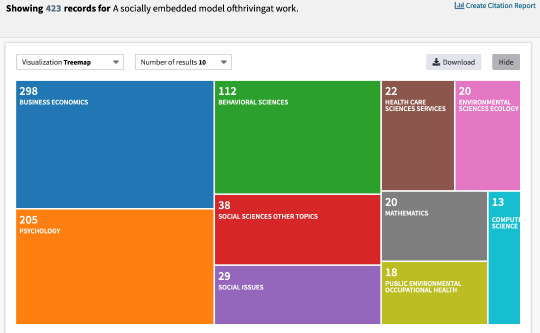
This article is higly influential and you can see that it crossed several disciplines. It is also part of the complexity we have to handle when making decisions what insights to follow. One way is to go for high citations (but we rarely go this way). Find attached here highly cited articles researching more aspects of thriving. These are all openly available articles.






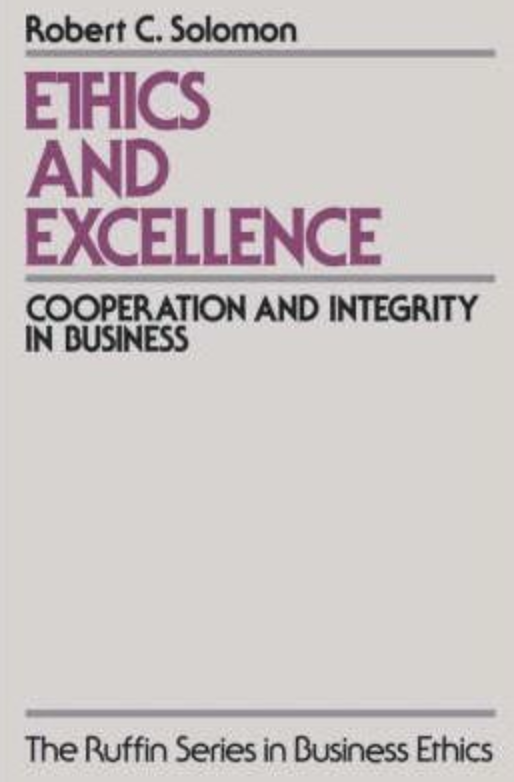
ETHICS AND EXECLLENCE
The Greek philosopher Aristotle, writing over two thousand years before Wall Street, called people who engaged in activities which did not contribute to society "parasites." In his latest work, renowned scholar Robert C. Solomon asserts that though capitalism may require capital, it does not require, much less should it be defined by, the parasites it inevitably attracts. Capitalism has succeeded not with brute strength or because it has made people rich, but because it has produced responsible citizens and―however unevenly―prosperous communities.
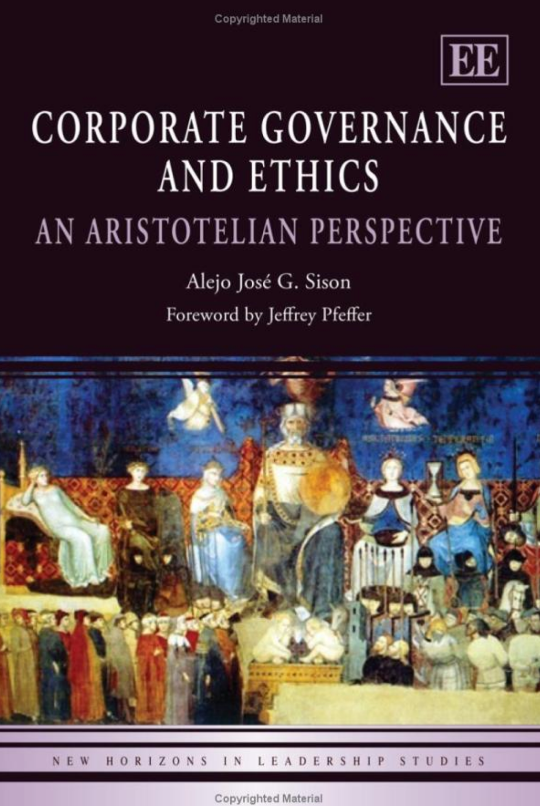
CORPORATE GOVERNANCE AND ETHICS
Sed feugiat porttitor nunc, non dignissim ipsum vestibulum in. Donec in blandit dolor. Vivamus a fringilla lorem, vel faucibus ante. Nunc ullamcorper, justo a iaculis elementum, enim orci viverra eros, fringilla porttitor lorem eros vel odio. Praesent egestas ac arcu ac convallis. Donec ut diam risus purus.
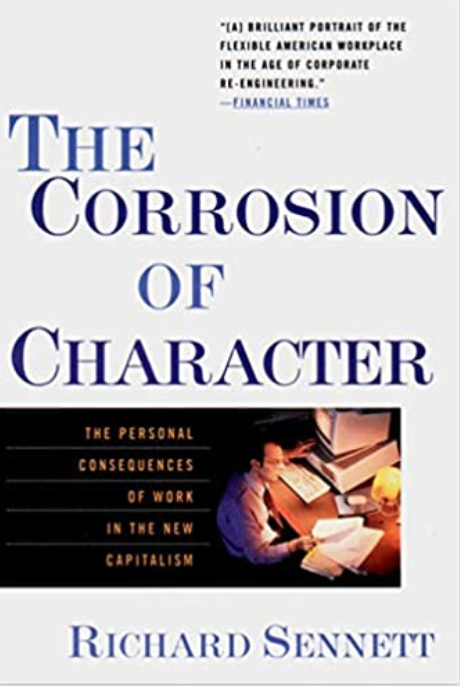
Carrie Leona wrote "Workplace flexibility is the topic of Richard Sennett's new book, “The Corrosion of Character: The Personal Consequences of Work in the New Capitalism,” his latest analysis of class, work, and social relations. Sennett seeks to remind us that stability—currently so maligned by business writers and consultants--has distinct benefits for individuals and society. More important, he raises a warning flag about the costs of flexibility and the toll it can take on our energy, our relationships, and our very characters."
Keywords: Individualism, Corrosion of Interdependence, Nomads, the loss of voice for exit, Flexible Working
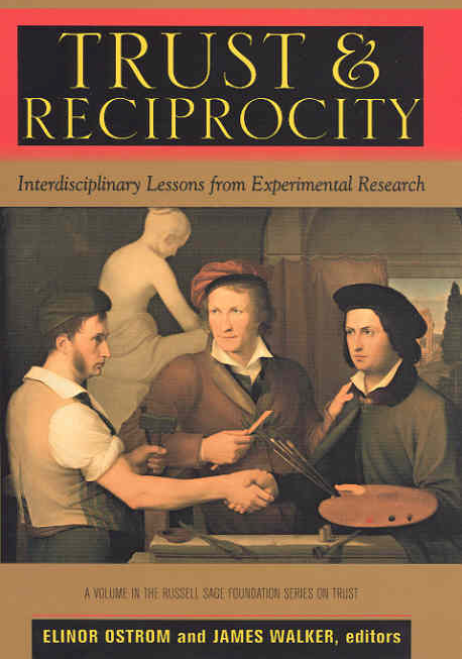
Trust and reciprocity are core foundations for our book. Find here in one of the many great book of the russell sage foundation on that topic findings from evolutionary psychology, game theory, and laboratory experiments, to explain the origins of trust and trustworthy behavior.
Keywords: Elinor Ostrom, Russell Hardin, Toshio Yamagishi, Margaret Levi and many more.
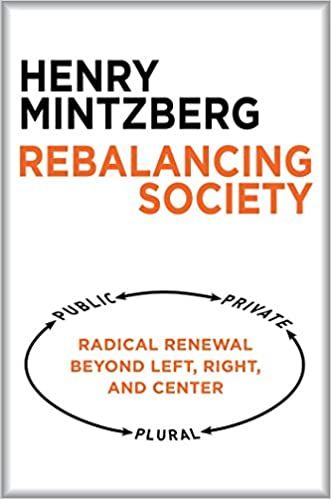
Mintzberg argues that a healthy society is built on three balanced pillars: a public sector of respected governments, a private sector of responsible enterprises, and what he calls a plural sector of robust voluntary associations (nonprofits, NGOs, etc.). Communism collapsed because the public sector was overbearing balance triumphed in 1989, not capitalism. But that misunderstanding has led to the private sector becoming overbearing in many countries, especially the United States, and this imbalance is wreaking havoc.
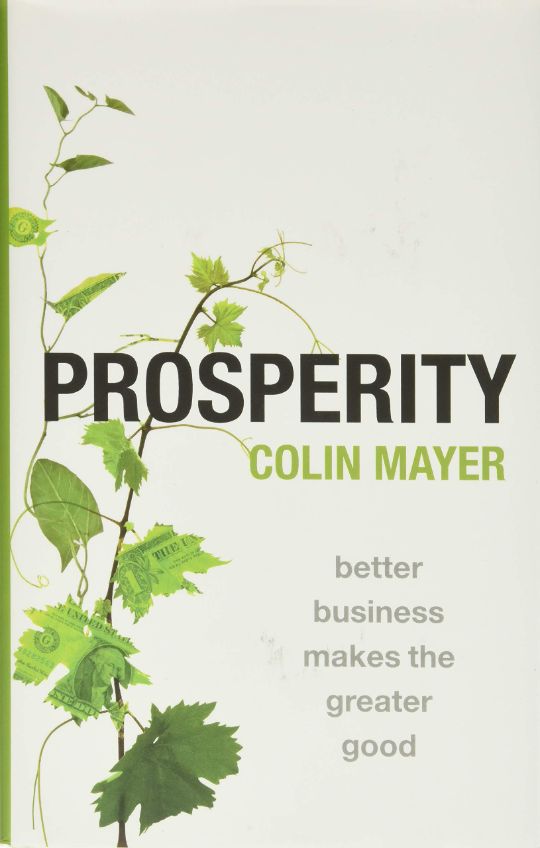
What is business for? Day one of a business course will tell you: it is to maximise shareholder profit. This single idea pervades all our thinking and teaching about business around the world but it is fundamentally wrong, Colin Mayer argues. It has had disastrous and damaging consequences for our economies, environment, politics, and societies.
In this urgent call for reform, Prosperity challenges the fundamentals of business thinking. It sets out a comprehensive new agenda for establishing the corporation as a unique and powerful force for promoting economic and social wellbeing in its fullest sense - for customers and communities, today and in the future.
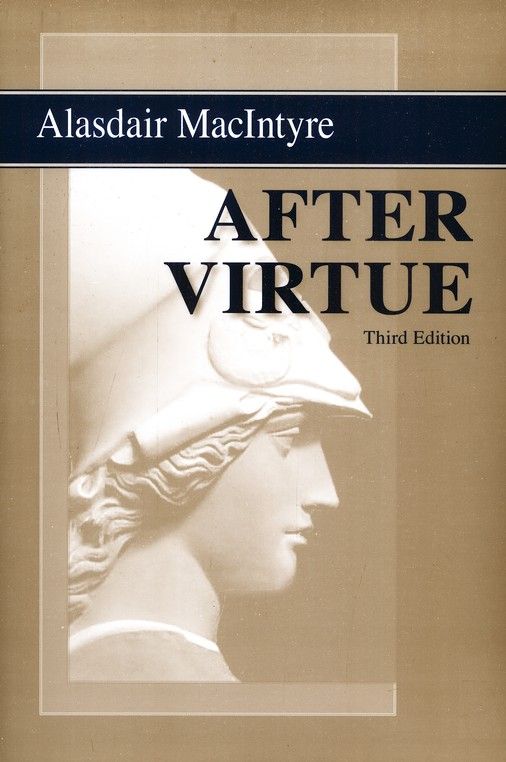
Highly controversial when it was first published in 1981, Alasdair MacIntyre's After Virtue has since established itself as a landmark work in contemporary moral philosophy. In this book, MacIntyre sought to address a crisis in moral language that he traced back to a European Enlightenment that had made the formulation of moral principles increasingly difficult. In the search for a way out of this impasse, MacIntyre returns to an earlier strand of ethical thinking, that of Aristotle, who emphasised the importance of 'virtue' to the ethical life.
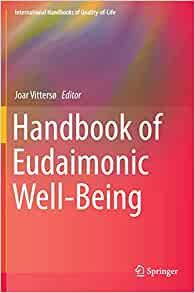
This handbook presents the most comprehensive account of eudaimonic well-being to date. It brings together theoretical insights and empirical updates presented by leading scholars and young researchers. The handbook examines philosophical and historical approaches to the study of happy lives and good societies, and it critically looks at conceptual controversies related to eudaimonia and well-being. It identifies the elements of happiness in a variety of areas such as emotions, health, wisdom, self-determination, internal motivation, personal growth, genetics, work, leisure, heroism, and many more.

In Doughnut Economics, Oxford academic Kate Raworth lays out the seven deadly mistakes of economics and offers a radical re-envisioning of the system that has brought us to the point of ruin. Moving beyond the myths of ‘rational economic man’ and unlimited growth, Doughnut Economics zeroes in on the sweet spot: a system that meets all our needs without exhausting the planet.
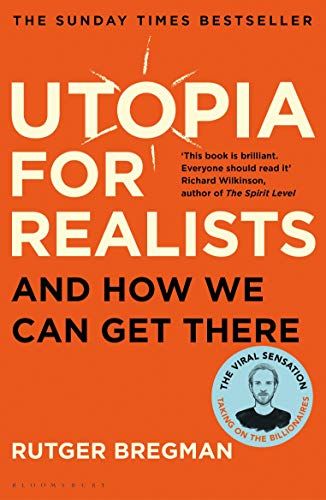
In Utopia for Realists, Rutger Bregman shows that we can construct a society with visionary ideas that are, in fact, wholly implementable. Every milestone of civilisation - from the end of slavery to the beginning of democracy - was once considered a utopian fantasy. New utopian ideas such as universal basic income and a fifteen-hour work week can become reality in our lifetime.
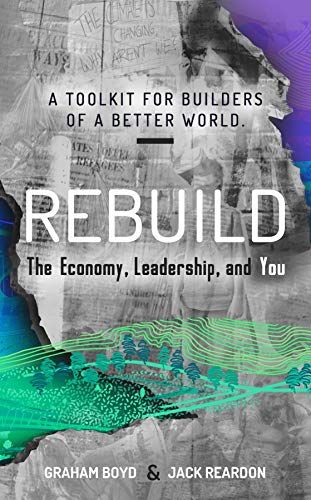
We believe that there has never been a better time to start businesses and build an economy that works for all of us, and all our needs. This book gives builders of a better world the toolkit and building blocks capable of doing the job, because each is designed for a regenerative, sustainable, circular economy that delivers a good life for all within the planet's boundaries. Whatever you are focused on, from our the rapid depletion of everything we need to live on the planet, the climate emergency, the 17 UN SDG, to your own life, you will get proven cutting edge approaches to
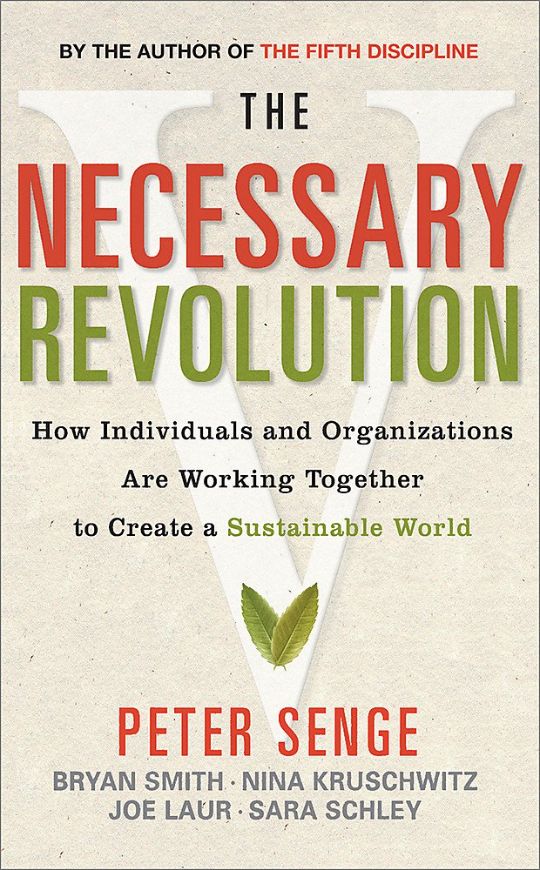
Imagine a world in which the excess energy from one business would be used to heat another. Where buildings need less and less energy around the world, and where "regenerative" commercial buildings - ones that create more energy than they use - are being designed. A world in which environmentally sound products and processes would be more cost-effective than wasteful ones. A world in which corporations such as Costco, Nike, BP, and countless others are forming partnerships with environmental and social justice organizations to ensure better stewardship of the earth and better livelihoods in the developing world. Now, stop imagining - that world is already emerging.